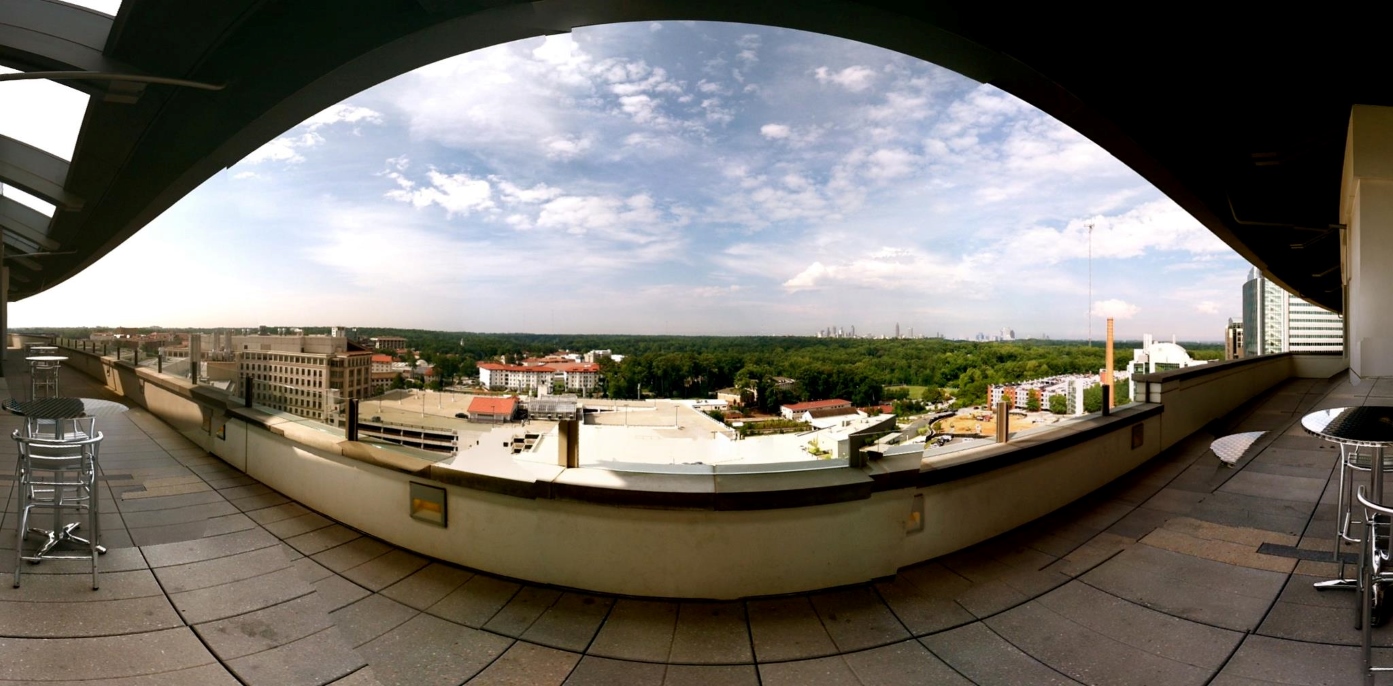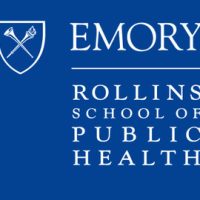Rollins School of Public Health Emory University


About
At the Rollins School of Public Health, students learn to identify, analyse, and address the world’s most urgent public health issues. Situated in Atlanta, the "Public Health Capital of the World," we offer students hands-on research opportunities through unmatched access to global institutions like the U.S. Centers for Disease Control and Prevention, CARE, and The Carter Center. With students from all 50 states and over 40 countries, Rollins fosters a diverse, community-oriented environment where real-world problem-solving is done.
Ranked 3rd nationally, our school includes six academic departments and over 200 expert faculty conducting groundbreaking research in areas such as infectious diseases, cancer, and health policy. Rollins also offers dual-degree programs with Emory’s business, law, nursing, theology, and medical schools, allowing students to engage in interdisciplinary studies and cutting-edge public health initiatives.
The Rollins School of Public Health has a 500,000 square foot multi-complex campus consisting of 3 buildings, The Grace Crum Rollins (GCR) Building, the Claudia Nance Rollins (CNR) Building, and the R. Randall Rollins (RRR) Building. This would not have been possible without the generous and unwavering support of the Rollins family. Beginning with Wayne Rollins, a successful local businessman and philanthropist, and continuing with his children and grandchildren through the O. Wayne Rollins Foundation, the family has provided transformative philanthropic support that allowed the school that bears its name to flourish.
GCR
Opened in fall 1995. A 10-story building housing academic departments, classrooms, student breakout and reading rooms, computer labs, furnished kitchen, Starbucks, and Rollins Cafe.
CNR
Opened fall of 2010. A 9-floor building built to the university’s environmental stewardship standards achieving Leadership in Energy and Environmental Design (LEED) Certification through the U.S. Green Building Council. CNR features wet and dry research labs, The Office of the Dean, and community partner offices for organizations including the CDC, The Carter Center, American Cancer Society, PRISM, Food Fortification Initiative, and CARE.
RRR
This LEED Gold Certified 10-floor building opened fall of 2022. Work spaces are conducive to a variety of working styles, with open-floor office spaces, collaborative meeting rooms and private offices occupied by a variety of the school’s service units and academic departments.
The building brought 10 new classrooms to the school — located on the lower level, and floors one, two and three — that range in capacity from 24 to 120, as well as multiple areas for studying, training and congregating. Dancing Goats coffee shop and adjacent lounge has a home on the first floor, next to the bridge, and an expansive reading room and outdoor terrace on the second floor invite opportunities for quiet study and meaningful connection.
Our students are highly engaged, not just in the classroom, but in student organizations, across campus, and in the broader community. At RSPH and Emory, there are a number of organizations and programs dedicated to connecting students with communities, resources, and support services to ensure that they are supported and excel at their full potential.
January 5th is the priority deadline for admission to our programs. Applications that are complete and verified with all supporting documents by the deadline are automatically eligible for priority merit consideration. After the deadline, applications are accepted on a space available basis.
MPH/MSPH application requirements include:
- Complete and verified application through SOPHAS at sophas.org
- Transcripts (WES evaluations for international transcripts)
- Two letters of recommendation
- Personal statement
- List of research/work/volunteer/honors experiences
- TOEFL scores (for international applicants)
- The GRE is not required for admission to most of our academic programs and will not be considered as part of the application for admission. The Department of Biostatistics and Bioinformatics (BIOS) offers a GRE optional policy. Students applying to BIOS can submit a GRE score for consideration. The GRE score must be submitted at the same time as the application for admission.
The Rollins School of Public Health seeks students who have an interest in and commitment to the field of public health. Our admissions process seeks to identify students who will be successful in our academic program. We offer several informative programs aimed at helping prospective students submit a strong application for admission. Please do not hesitate to be in touch with any questions.
Visit sph.emory.edu/apply to learn more about application requirements.
Enrolling at the Rollins School of Public Health means joining a global leader in public health education that equips you for a successful and impactful career. From the moment you start, you'll have access to a network of students, alumni, faculty, and leading public health organizations worldwide. The support doesn’t stop at graduation—Rollins offers lifetime career coaching and ongoing professional connections to help you succeed throughout your career.
Visit the link to hear what our graduates have to say.
About
At the Rollins School of Public Health, students learn to identify, analyse, and address the world’s most urgent public health issues. Situated in Atlanta, the "Public Health Capital of the World," we offer students hands-on research opportunities through unmatched access to global institutions like the U.S. Centers for Disease Control and Prevention, CARE, and The Carter Center. With students from all 50 states and over 40 countries, Rollins fosters a diverse, community-oriented environment where real-world problem-solving is done.
Ranked 3rd nationally, our school includes six academic departments and over 200 expert faculty conducting groundbreaking research in areas such as infectious diseases, cancer, and health policy. Rollins also offers dual-degree programs with Emory’s business, law, nursing, theology, and medical schools, allowing students to engage in interdisciplinary studies and cutting-edge public health initiatives.
The Rollins School of Public Health has a 500,000 square foot multi-complex campus consisting of 3 buildings, The Grace Crum Rollins (GCR) Building, the Claudia Nance Rollins (CNR) Building, and the R. Randall Rollins (RRR) Building. This would not have been possible without the generous and unwavering support of the Rollins family. Beginning with Wayne Rollins, a successful local businessman and philanthropist, and continuing with his children and grandchildren through the O. Wayne Rollins Foundation, the family has provided transformative philanthropic support that allowed the school that bears its name to flourish.
GCR
Opened in fall 1995. A 10-story building housing academic departments, classrooms, student breakout and reading rooms, computer labs, furnished kitchen, Starbucks, and Rollins Cafe.
CNR
Opened fall of 2010. A 9-floor building built to the university’s environmental stewardship standards achieving Leadership in Energy and Environmental Design (LEED) Certification through the U.S. Green Building Council. CNR features wet and dry research labs, The Office of the Dean, and community partner offices for organizations including the CDC, The Carter Center, American Cancer Society, PRISM, Food Fortification Initiative, and CARE.
RRR
This LEED Gold Certified 10-floor building opened fall of 2022. Work spaces are conducive to a variety of working styles, with open-floor office spaces, collaborative meeting rooms and private offices occupied by a variety of the school’s service units and academic departments.
The building brought 10 new classrooms to the school — located on the lower level, and floors one, two and three — that range in capacity from 24 to 120, as well as multiple areas for studying, training and congregating. Dancing Goats coffee shop and adjacent lounge has a home on the first floor, next to the bridge, and an expansive reading room and outdoor terrace on the second floor invite opportunities for quiet study and meaningful connection.
Our students are highly engaged, not just in the classroom, but in student organizations, across campus, and in the broader community. At RSPH and Emory, there are a number of organizations and programs dedicated to connecting students with communities, resources, and support services to ensure that they are supported and excel at their full potential.
January 5th is the priority deadline for admission to our programs. Applications that are complete and verified with all supporting documents by the deadline are automatically eligible for priority merit consideration. After the deadline, applications are accepted on a space available basis.
MPH/MSPH application requirements include:
- Complete and verified application through SOPHAS at sophas.org
- Transcripts (WES evaluations for international transcripts)
- Two letters of recommendation
- Personal statement
- List of research/work/volunteer/honors experiences
- TOEFL scores (for international applicants)
- The GRE is not required for admission to most of our academic programs and will not be considered as part of the application for admission. The Department of Biostatistics and Bioinformatics (BIOS) offers a GRE optional policy. Students applying to BIOS can submit a GRE score for consideration. The GRE score must be submitted at the same time as the application for admission.
The Rollins School of Public Health seeks students who have an interest in and commitment to the field of public health. Our admissions process seeks to identify students who will be successful in our academic program. We offer several informative programs aimed at helping prospective students submit a strong application for admission. Please do not hesitate to be in touch with any questions.
Visit sph.emory.edu/apply to learn more about application requirements.
Enrolling at the Rollins School of Public Health means joining a global leader in public health education that equips you for a successful and impactful career. From the moment you start, you'll have access to a network of students, alumni, faculty, and leading public health organizations worldwide. The support doesn’t stop at graduation—Rollins offers lifetime career coaching and ongoing professional connections to help you succeed throughout your career.
Visit the link to hear what our graduates have to say.



